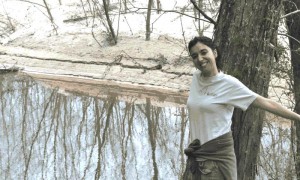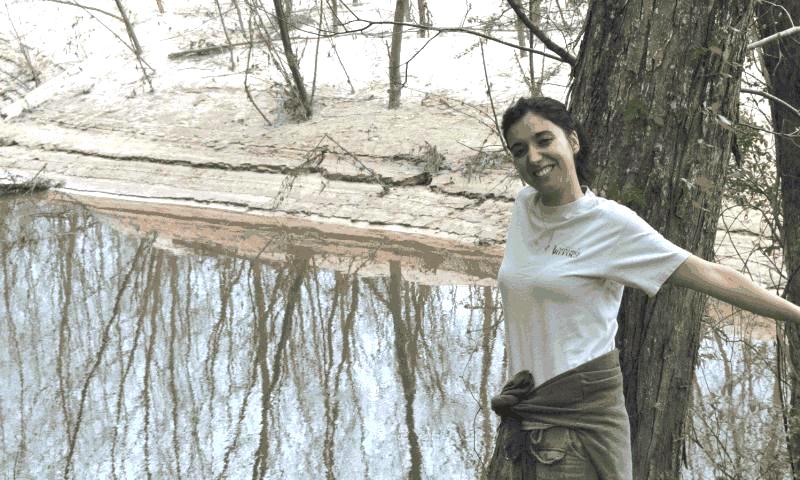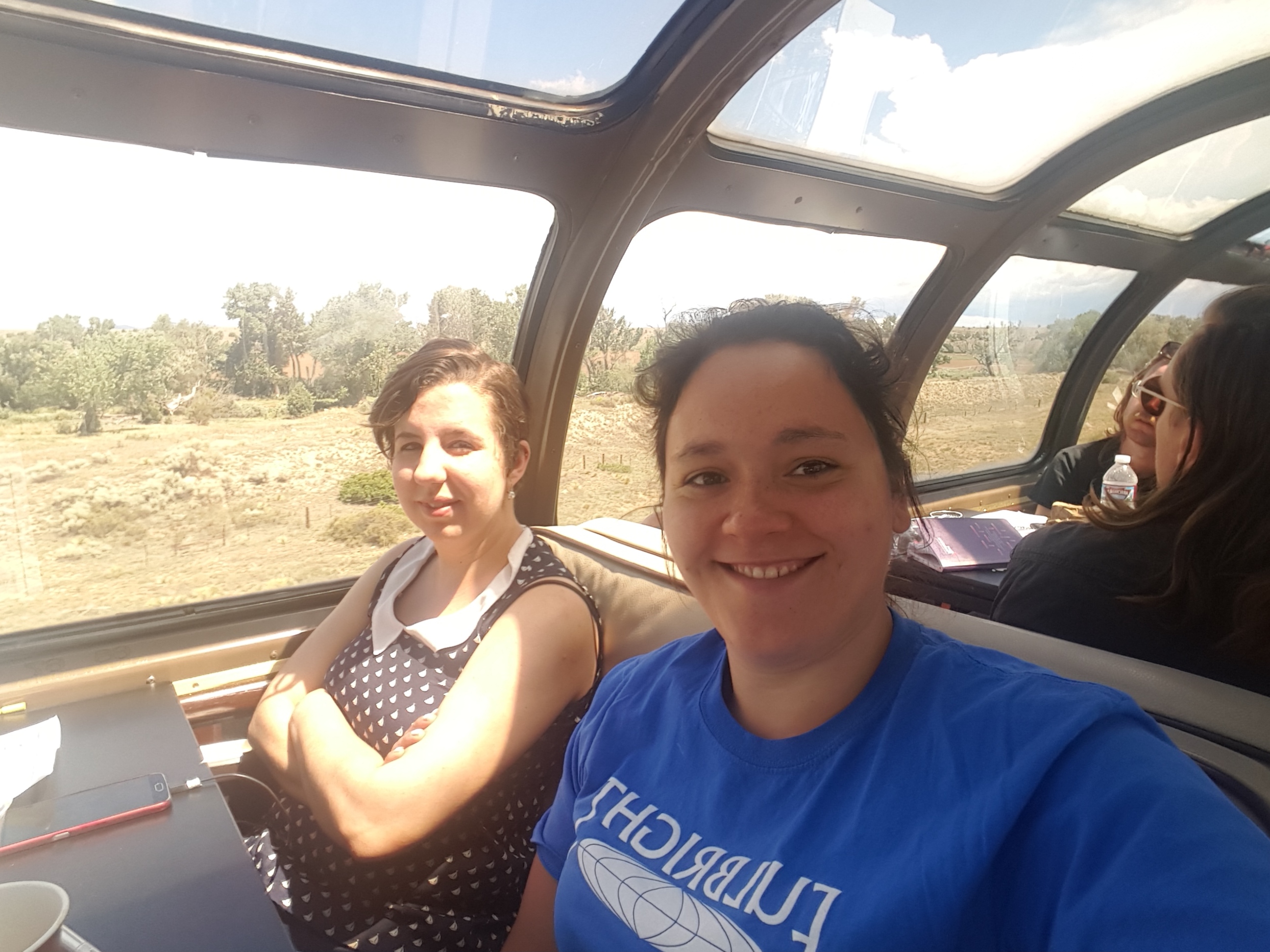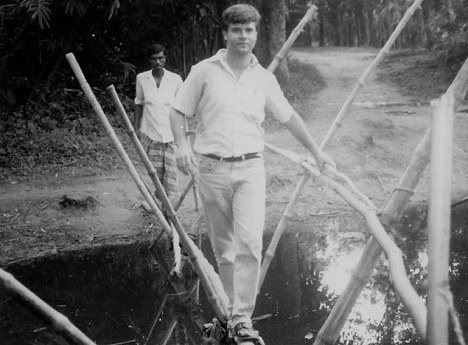
Giusy Pappalardo, 2012-2013, Italy, standing along the Pascagoula River, the largest (by volume) unimpeded river system within the 48 contiguous United States
In a local farmers market, colorful t-shirts hang from hooks proudly proclaiming, in the words of William Faulkner, “To understand the world, you have to understand a place like Mississippi.” As a Fulbright Foreign Student from Italy studying at Mississippi State University’s (MSU’s) Department of Landscape Architecture, I have witnessed the meaning of this sentence first hand.
I’ve spent 10 months in the Deep South, traveling in an old Jeep which I obtained from another international student before he returned to India. “The car will be happy with you,” he announced when he handed me the keys. He was just one of the countless international friends I met on MSU’s campus. In our scented kitchens where we’ve shared tasty food and long conversations, I’ve learned about diverse cultures and made new connections.
Thanks to the car I inherited, it was easy to start my fieldwork. My Fulbright research has focused on the characteristics of interactions between human communities and rivers. I’m from the Italian island of Sicily, where I conducted Participatory Action Research with a network of grassroots NGOs that are trying to save the Simeto River, an important river in Sicily. The similarities between the Mississippi and the Simeto rivers are not based on physical characteristics. Rather, they are based on shared meanings and benefits which rivers can offer to the communities through which they flow throughout the world. My Fulbright grant has given me the opportunity to collect stories about other rivers narrated by their inhabitants. I’ve also explored some case studies with interviewees in which I’ve showed them a short video about the Simeto River in order to create a shared communality. After returning to Sicily, I will share these Mississippi-based stories with my home community through yet another video, further bridging the distance between Italy and the United States.
Mississippi is the poorest state in the United States. Its history includes slavery, cotton plantations, destructive floods, racial discrimination, the Civil Rights Movement, and the Blues. Its counties, streams, and small towns still have Native American names. Its national parks and wildlife refuges stand like oases of peace. The Mississippi Delta, the floodplain of the river, is still the state’s economic core. High tech agribusinesses have replaced old labor-intensive plantations. Unfortunately, the Delta still suffers from big economic disparities in wealth and quality of life.
Nevertheless, Mississippi is rich in hope, despite the exploitation of both human and natural resources. This hope is reflected by Ojibwe women walking along the Mississippi River (or “Great River” in the Ojibwe language), for 1,754 miles, canoe builders teaching African-American youth arts and crafts in the Delta, young farmers delivering fresh vegetables weekly to local families and students, and an old man and a child fishing together where the Pascagoula River meets the Gulf of Mexico. They are all part of Mississippi. The state has also touched me personally, outside of my research, based on my experiences with the Farm to Preschool program, where I served as a MSU volunteer and coordinated gardening activities. I’ll always remember hugging the kids with whom I volunteered. These are the experiences that I’ll bring home with me, together with the unselfish gestures and bright smiles of the American and international friends I’ve met and worked with on my Fulbright journey.




No Comments